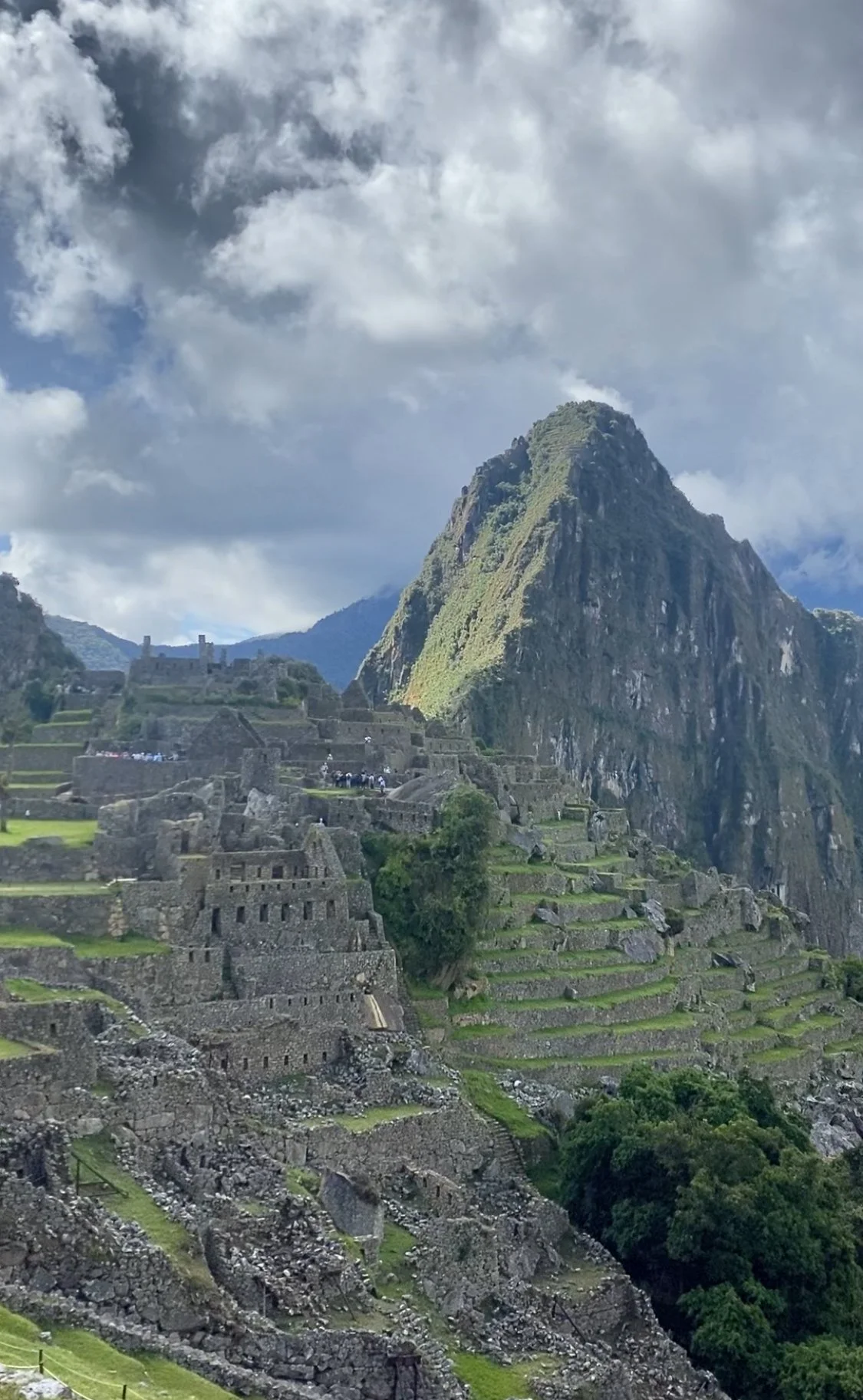Morning at Machu Picchu: A Guide's Perspective
olga Muyu
"In the silence before dawn, even stones prepare to remember."
4:30 AM. While most of Aguas Calientes sleeps beneath cloud forest mist, Isaac and Ervin are already reviewing the day's plans over steaming cups of coca tea. Today, they're taking a small family group to experience Machu Picchu as less visitors ever do—in the golden hour before the crowds arrive, when the ancient citadel belongs to the mountains, the mist, and those fortunate enough to witness its daily awakening.
The pre-dawn bus ride up the winding road carries its own magic. Our guests peer into darkness that gradually reveals glimpses of the rushing Urubamba River far below. The anticipation is palpable—for most, this represents the culmination of years of dreaming about Peru and the deep soul-calling that draws people to this sacred place.
For Isaac, Machu Picchu holds deeper meanings. As they approach the entrance, he shares the story he once heard about “how the stones seemed to remember being uncovered. You can feel them breathing again as morning light touched them for the first time in four hundred years."
Ervin leads the way through entrance gates in near-darkness, his flashlight dancing across stone steps worn smooth by countless pilgrims. As they climb toward the viewpoint, he shares how bringing his first group here twenty years ago changed his understanding of guiding. "I realized that we don't bring people to see Machu Picchu," he explains. "We help them witness their own capacity for wonder."
At the guardian's hut overlooking the complex, the eastern horizon transforms from black to purple to gold. This is the moment Isaac and Ervin have orchestrated—when their guests stand between night and day, between ordinary experience and something that will reshape their understanding of human possibility.
The first rays don't simply illuminate Machu Picchu; they resurrect it. As golden light creeps across granite peaks, the terraces emerge from shadow like a revelation written in stone. The precision becomes apparent—how every building aligns with astronomical events and geographic features the Inca understood as sacred.
During one memorable morning, Ervin watched as a visitor stood transfixed, tears streaming down her face. "I came here to see ancient ruins," she whispered, "but I'm witnessing something alive." This is the transformation that happens—people arrive as tourists seeking monuments, but become pilgrims receiving something that will live within them long after they return home.
By the time sun fully crests the mountains, their guests have transcended tourism. They've become temporary guardians of a story reaching back five centuries. More importantly, they've received something intangible that will travel home with them: understanding that there are places where the boundary between visible and invisible grows beautifully thin, where ancient wisdom still whispers to those who listen.
The essence they absorb isn't contained in photographs or guidebook facts. It lives in the quality of silence as mist lifted from terraces, in how morning light revealed mathematical precision of stone walls, in standing where human vision aligned with cosmic order. This essence becomes part of their story, woven into their understanding of what's possible.
Isaac often concludes these mornings with words that capture what they've experienced: “ Machu Picchu was built as a bridge between earth and sky, between human aspiration and cosmic order. We walk across that bridge for a few hours. But what we carry back—the wonder, the reverence, the understanding that such beauty is possible—that becomes part of who we are forever."
As other visitors arrive and the sanctuary fills with voices, Isaac and Ervin guide their group through the citadel, sharing knowledge that transforms stone walls into stories. But they know the real magic happened in those first golden moments, when Machu Picchu revealed itself in solitude and silence.
This is why they rise at 4:30 AM. This is why they've dedicated their lives to creating these moments of connection. Because in witnessing dawn break over Machu Picchu, guests don't just see archaeological treasures—they experience their own capacity for reverence and transformation.
This is why we do what we do.
